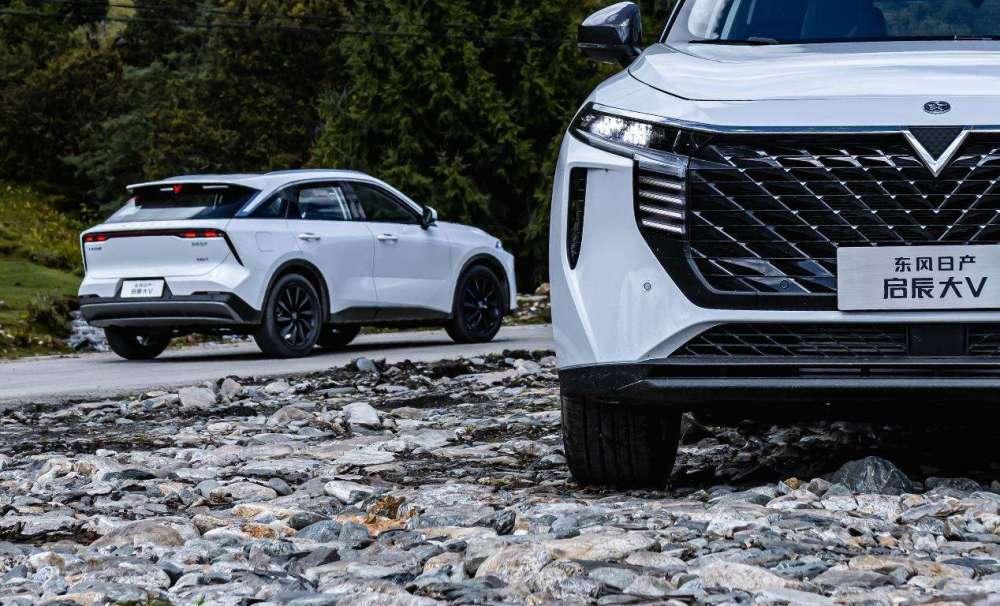"Joint venture autonomy" is relatively unfamiliar to many young people now. It mainly refers to the purchase and introduction of foreign product technology platforms by domestic automobile joint ventures, and on this basis, the brands and models attributable to the joint venture companies with intellectual property rights are redeveloped.
Typical examples are the GAC Concept, SAIC-GM-Wuling Baojun, and Nissan Venucia are among the representatives.
When these brands were first launched, most of the joint venture independent brands were replacement models of joint venture cars, so the purchase of such products is very affordable for consumers, and they can spend the money of domestic independent brands to buy "joint venture cars" with very good technology and quality. But over time, these brands are currently in a very awkward position. In this article, we will take Venucia as an example to talk about the joint venture autonomy, what embarrassing situations are now faced!

[1] The rise of autonomy and the gap between joint venture autonomy and joint venture autonomy are getting wider and wider
First of all, the development momentum of independent brands in recent years has been very rapid, and the difference with joint venture brands has gradually narrowed. Especially in the SUV market, as well as in the new energy vehicle market. Independent brands have even occupied the absolute right to speak. In the era of fuel vehicles, independent brands may lag behind joint venture brands in terms of core technologies, but after the advent of the new energy era, independent brands have more advantages than joint venture brands in some new energy core technologies, such as BYD DM-i super hybrid, Great Wall DHT-PHEV, and Geely Raytheon hybrid, all of which are more advanced than the joint venture brand hybrid technology. Therefore, the technology of independent brands has advanced by leaps and bounds. And joint venture autonomy, if you continue to "take the doctrine" and eat the "leftovers" of the joint venture, then the living space is very small.
We know that Venucia has always claimed to have originated from Nissan. Even some parts are suppliers to Nissan. But in the final analysis, Venucia did not get the technology that Nissan had the first machine. Therefore, under such circumstances, Venus, which does not have its own core technology research and development capabilities, will be surpassed by its own brands, and the gap will become larger and larger.
[2] The joint venture sinks, and it is difficult for the joint venture to have a living space
Secondly, the joint venture brand is currently facing increasing market pressure, and it has to consolidate its market share by reducing prices, reducing allocation, and multi-generational co-ownership. We take Nissan and Venucia as an example, Nissan X-Trail, Nissan Xuanyi are currently sold in the same house for many generations, and the price of the previous generation of classic Xuanyi has dropped to about 80,000. Nissan is selling at such a cheap price, so Venus, which is positioned lower than Nissan, can only further reduce the price.
Therefore, under the premise that the joint venture brand must reduce the price to survive, the living space of the joint venture autonomy is further compressed. It can be said that the good days of joint venture autonomy have come to an end.
[3] Seeking transformation, Venucia will inevitably "take ism" and "eat leftovers"!
We look at Venucia's current product line, and the main model sold at present is Venucia Big V. However, this car does not have much technology from Nissan.
The car's engine is a 1.5T engine from Aerospace Mitsubishi, not Nissan technology. The transmission is a dry dual-clutch transmission independently developed by SAIC. In other words, the engine gearbox is not developed by itself.
In fact, Mitsubishi engine has no advantage in the Chinese market and has been abandoned by many independent brands. The gearbox, even SAIC itself is not very popular, and due to the reliability and frustration of the dry double clutch itself, the reputation in the industry is also very poor, and almost no price brands will use it. It can be seen that Venucia has no ability to independently develop its own research and development on the key engines and gearboxes of the car, let alone to upgrade the car.
At present, there are also many problems on the Network about venucia's big V engine, but because the engine is not independently developed by Venucia at all, so there is a problem with the engine, and Venucia's response attitude is also relatively negative.
Is there still a way out for Venucia? I think it's very difficult in the current market environment. Because if a car brand wants to succeed, it must be technical support in the final analysis. What Venucia lacks is the core technology. In the past, Nissan could also give venucia some technology, but now Nissan is also relatively slow in the transformation of new energy. So there is really not much time left for Venus.